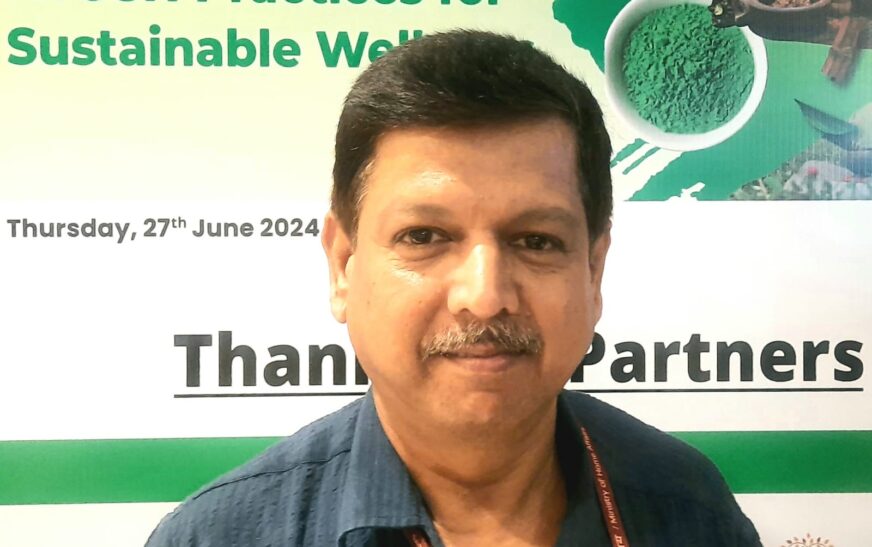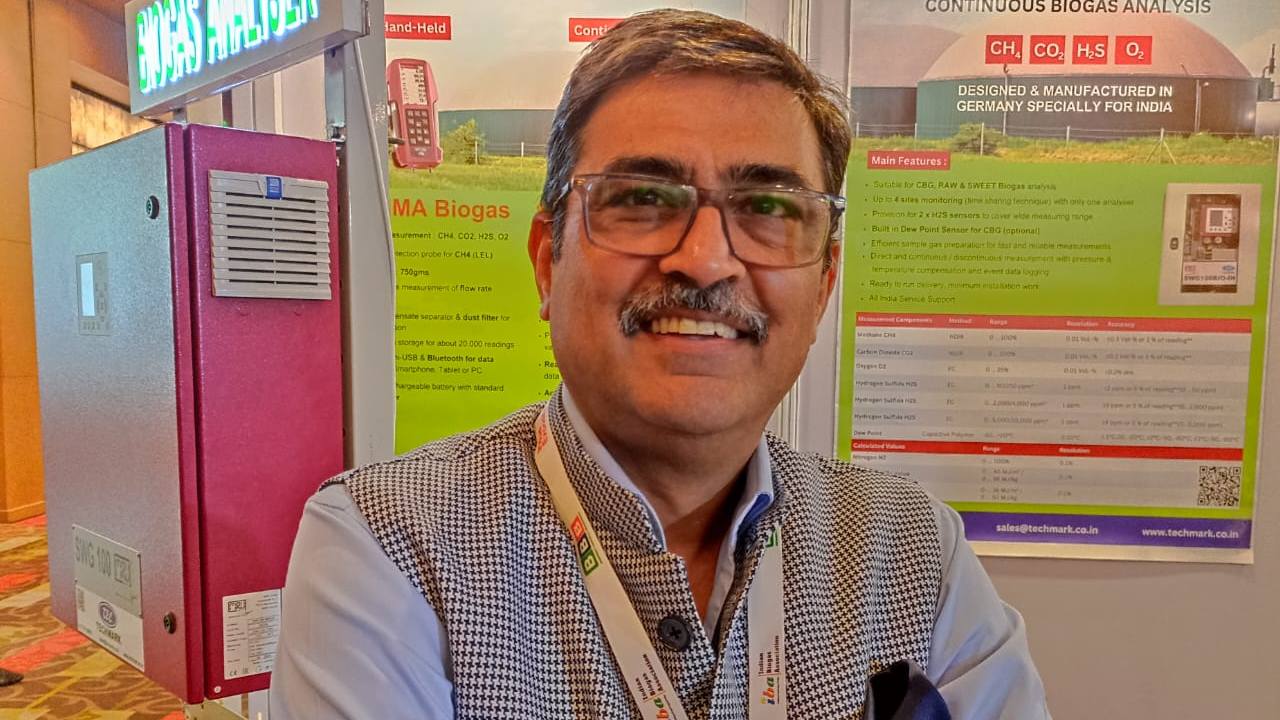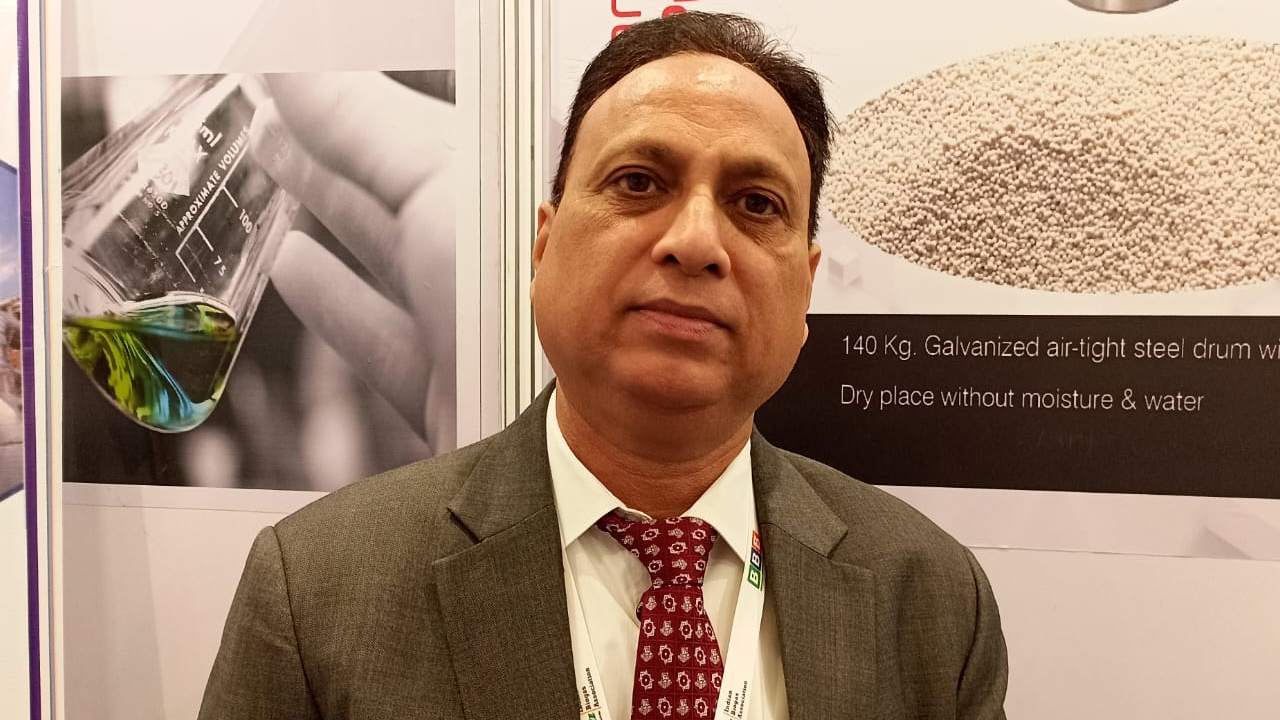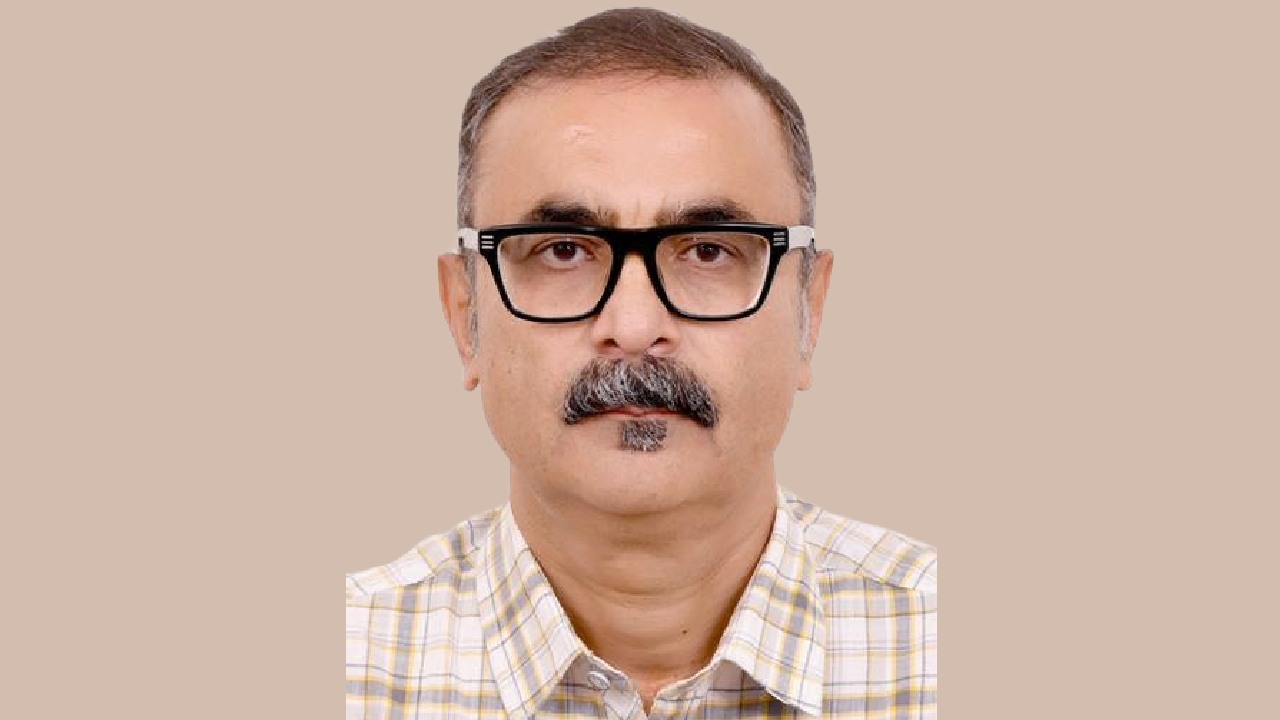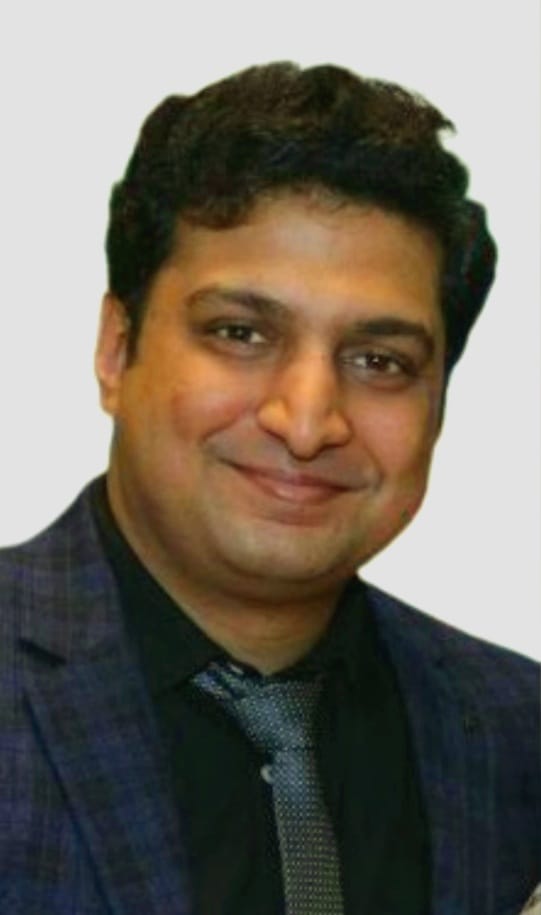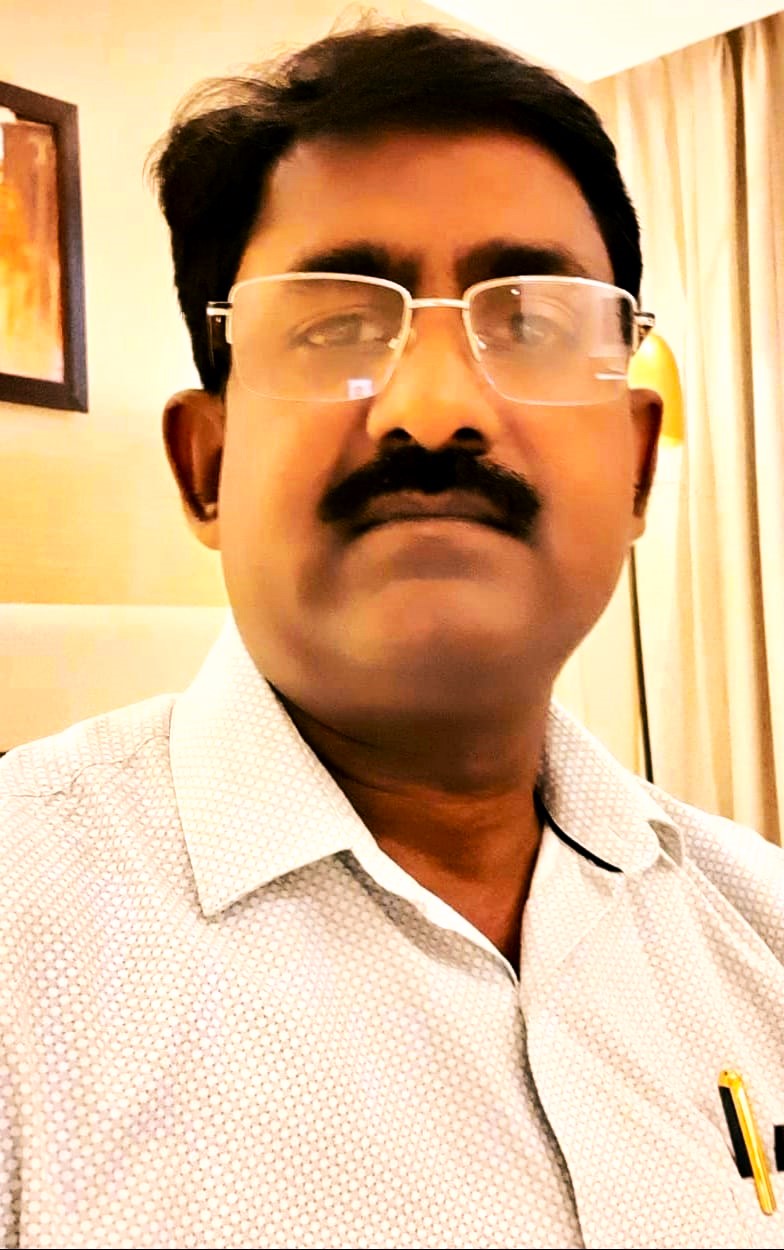Dr. Manoj Nesari, Advisor (Ay.) at the Ministry of Ayush, Government of India, stands as a transformative force, fortifying the health system through the integration of Ayurveda and other venerable Indian traditional medical systems into the public healthcare fabric. In his capacity as the Head of the International Cooperation Division within the Ministry, Dr. Nesari brings to bear an MD in internal medicine (Kayachikitsa) and a PhD in Policy Research.
With an illustrious career spanning three decades, Dr. Nesari’s profound expertise encompasses Ayurvedic science, clinical practice, policy formulation, international collaboration, and public health advocacy. His pioneering efforts have given birth to myriad initiatives, significantly broadening the reach and application of Ayurvedic services in public health. Prior to his current distinguished role, he helmed the National Academy of Ayurveda as Director and served with distinction as Chief Medical Officer in the Central Government Health Scheme.
In an exclusive conversation with The Interview World, Dr. Manoj Nesari elucidates the government’s strategic policy measures for Ayush products. He delves into the pivotal role of governmental oversight in the alignment of Ayush certification with WHO standards, underscores the groundbreaking initiatives towards the establishment of an Ayush visa, accentuates the symbiotic integration of Ayush with sustainable wellness paradigms, and expounds upon the burgeoning domestic market for Ayurveda products. Herein lie the cardinal insights from his perspicacious interview.
Q: What policy measures is the government implementing to support and regulate Ayush products?
A: We are assiduously endeavoring to establish rigorous standards across four quintessential domains: service, product, education, and infrastructure. These standards are imperative as they encapsulate all sectors engaged in service provision.
Our meticulous efforts are directed towards codifying standards in these four sectors, thereby elevating the quality of drug standards. The Pharmacopeia Commission has undergone substantial reforms, fortifying its pivotal role. We have also amalgamated and accredited the testing laboratories and the Pharmacopeia Commission, thereby enhancing their synergistic capabilities.
Our comprehensive approach addresses both the establishment of standards and the institutions responsible for setting these standards. Concurrently, we are augmenting the capacity of the Pharmacopeia Commission. Additionally, under the auspices of the BIS (Bureau of Indian Standards), the official entity representing India on the global stage for standard development, we have instituted a dedicated vertical.
Through BIS, we are harmonizing with ISO standards and propelling the medical value travel initiative by instituting robust standards for hospitals, clinics, daycare centers, and wellness providers. These three categories of service providers now adhere to well-defined standards.
Moreover, we are meticulously standardizing various terminologies. For instance, the SSD-16 group was constituted to elucidate terms pertinent to medical value travel, such as “doctor” and “medical practitioner.” This endeavor ensures international validation and clarity for foreigners seeking services in India, which is a perpetual process.
Furthermore, we have crafted training modules for service providers, specifically therapists, recognizing that exemplary care transcends merely having proficient doctors. Our collaboration with the Skill Development Council ensures that therapists are adeptly trained.
Recently, we promulgated the Indian Public Health Standards (IPHS) for the Ayush sector, addressing public health infrastructure comprehensively. Moreover, these newly unveiled IPHS standards are designed to guide enhancements in public health infrastructure.
In summation, our exhaustive efforts are directed towards an all-encompassing elevation of standards across all pertinent sectors, thereby ensuring the highest echelon of quality and service.
Q: What measures is the government taking to integrate Ayush certification with WHO standards?
A: We have forged pioneering standards with the WHO, setting benchmarks in education, practices, and Panchakarma across Ayurveda, Unani, and Siddha. Simultaneously, we’ve launched the Global Traditional Medicine Center (GTCM), a WHO initiative—remarkably, the first of its kind beyond the West or developed nations, championed with support from India’s Ministry of Ayush.
This visionary center aims to draw nations worldwide, positioning India at the forefront of shaping global healthcare practices and advancing traditional medicine systems. Moreover, it facilitates a dynamic exchange of insights, fostering reciprocal learning opportunities. Our collaborative endeavor with the WHO stands as a formidable milestone in international cooperation.
Q: Can you provide detailed information about the new Ayush visa recently introduced by the government?
A: The introduction of the Ayush visa represents a monumental stride in medical tourism. This pioneering initiative facilitates meticulous data collection on foreign visitors’ healthcare preferences across diverse regions, spanning Western, Eastern, and African countries. This data promises profound insights into their health-seeking behaviors, thereby facilitating targeted enhancements in hospital and wellness center infrastructure. It empowers the government to optimize healthcare facilities and bolster the capabilities of healthcare providers, encompassing doctors, hospitals, wellness centers, yoga experts, and therapists.
Q: How can Ayush be integrated into sustainable wellness practices?
A: Ayush represents the expansive realm of traditional medicine, specifically emphasizing sustainable wellness. While its core focus is on wellness, it intricately intersects with sustainable development goals that span nutrition, veterinary care, and environmental stewardship. The ethos of Vasudhaiva Kutumbakam underscores our interconnectedness with all facets of the universe—be it living or non-living entities. As integral members of this global family, our actions ripple across each other, underscoring the imperative for Ayush disciplines like Ayurveda, Yoga, and Unani to foster universal well-being.
This overarching theme holds profound relevance, encompassing pivotal domains such as education, quality standards, regulations, and public awareness. While achieving these objectives constitutes a long-term endeavor, the Ministry of Ayush has displayed commendable initiative over the past eight years, marking significant strides in this transformative journey.
Q: What is the current market size of the domestic Ayurveda products industry?
A: In 2017, aided by CII, we initiated our first survey using 2014 data to gauge the market size of Ayurvedic products, excluding services. At that time, it stood at approximately $3 billion. Later, in November 2021, collaborating with the Research and Information System for Developing Countries (RIS) through their Forum on Indian Traditional Medicine (FITM), we conducted another survey. This revealed substantial growth, with the market size soaring to $18.2 billion. Presently, it is anticipated to reach $25 billion. This figure reflects the domestic product market, alongside significant export activities.

